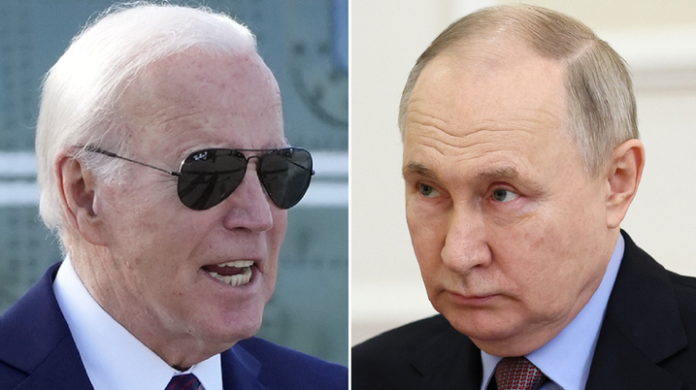Ilir Meta, the former president of Albania, has issued a warning to President Biden about the growing influence of Russia in the Western Balkans. In an exclusive interview with Fox News Digital, Meta expressed his concern that the United States is forgetting about Albania and its neighbouring countries.
Meta, who served as Albania’s president from 2017 to 2022 and currently leads the Party of Freedom, believes that the Balkans are “suffering from the status quo” and that outside actors, particularly Russia, are attempting to hinder the region’s integration with the European Union (EU) and NATO.
According to Meta, Russia is seeking to create a power vacuum in the Balkans to undermine European values and foundations.
[ US House Of Representatives Approves $60.8bn Aid Package For Ukraine ]
He emphasized the importance of not overlooking Albania and the Western Balkans, highlighting the country’s significant contributions to U.S. foreign policy goals and its status as a key European and NATO ally.
Albania, despite being one of Europe’s poorest nations, has developed strong pro-U.S. sentiments over the years.
The country, once an authoritarian Marxist state with strained relations with the U.S. during the Cold War, now has a large diaspora community in the United States and is considered one of the most pro-U.S. countries in Europe.
However, Meta believes that Albania is not receiving the attention it deserves from President Biden and Western policymakers. While the U.S. focuses on supporting Ukraine against Russia’s invasion and backing Israel in its conflict with Hamas, the Balkans worry that their region is being neglected.
Meta’s concerns about the United States’ absence in the region are further exacerbated by recent developments in Serbia.
Aleksandar Vulin, a former head of intelligence in Serbia with close ties to Russia and who is sanctioned by the U.S., has been appointed to Serbia’s new government. This move is seen by many as an indication that Serbia is not abandoning its pro-Russian sentiments, even as it seeks EU membership.
The U.S. State Department expressed disappointment over the appointment, stating that its top priority in the Western Balkans is to support countries in the region in realizing their economic and democratic potential through Euro-Atlantic integration and regional cooperation.
The spokesperson emphasized the importance of full alignment with the EU on foreign and security policy.
Meta also raised concerns about the “Open Balkans” initiative, which aims to promote freer movement of people and goods across the Balkans. While the initiative may seem beneficial on the surface, Meta believes it is an alternative to European integration and will strengthen hybrid regimes like Serbia.
Meta fears that the initiative will undermine free and fair elections, eliminate political pluralism, and restrict media freedom and freedom of speech. However, Serbia’s new Minister of Foreign Affairs, Marko Djuric, disagrees with Meta’s characterization of the Open Balkans initiative.
Djuric argues that Serbia is proud of its democratic efforts, including the Open Balkans initiative, and sees it as a means to foster stability, prosperity, and cooperation in the region.
He asserts that Serbia remains committed to the EU integration process and seeks to contribute to the region’s stability and security. However, scepticism remains among many in the West regarding Serbia’s true commitment to democratic values and European integration.
“Serbia’s engagement in the Balkans is guided by principles of democracy, respect for sovereignty, and regional cooperation. We are committed to our EU path while also pursuing partnerships that contribute to peace and development in the region.”
Agim Nesho, former Albanian ambassador to the U.S. and the United Nations, told Fox News Digital that Serbian President Aleksandar Vucic and Albanian Prime Minister Rama “are the most undemocratic, corrupt, and destabilizing leaders the region has seen in 30 years” and are not advancing U.S. or European interests.
Nesho and other observers of the region say the idea that placating Serbia will keep it closer to Europe than Putin’s Russia is wishful thinking and has given ultranationalist Serbs and President Vucic a strong hand to play with the West.
According to Nesho, the Open Balkans initiative is primarily a venue for Serbian and Russian policymakers to coordinate their actions to advance both countries’ interests in the region.
The United States’ appeasement of Serbia’s disruptive actions enables Vucic to use both the Serbian entity in Bosnia-Herzegovina to foment instability and to retain the northern Kosovo region as a frozen conflict, exposing a clear lack of strategy from Washington.
Catch up with the latest news from The Times Post on WhatsApp by following our channel. Click here to join.
Kindly follow @thetimespost on Instagram. On X (Twitter), follow @thetimespost2.


